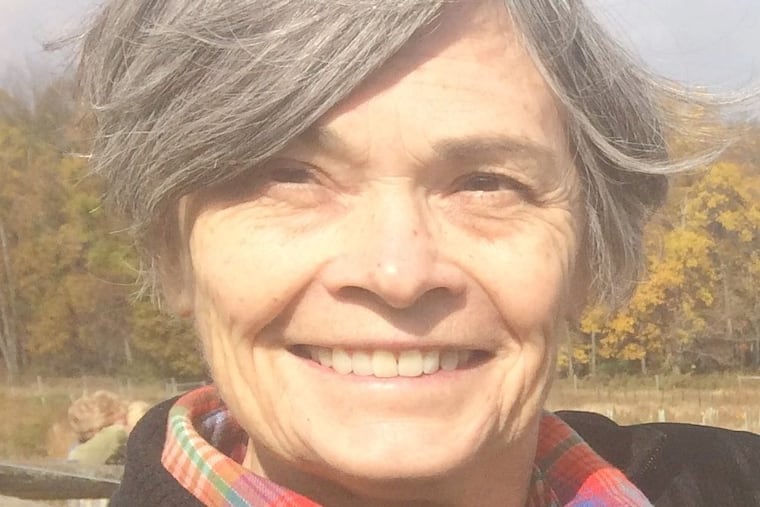Dorothy Cheney, 68, noted primate researcher at Penn
Dr. Cheney was known for her patient, careful observations of animals in the wild. Encounters with lions and snakes were not uncommon.

Dorothy L. Cheney, 68, of Devon, a University of Pennsylvania professor who with her husband, Robert Seyfarth, produced groundbreaking research on the communication, cognition, and behavior of baboons and other monkeys living in the wild, died Friday, Nov. 9, of metastatic breast cancer at her home.
The couple's work changed the field of primatology in two important ways, said professor Joan Silk of Arizona State University, an anthropologist and colleague. They were the first to ask: What do monkeys know about the world in which they live?
Second, Silk said, Dr. Cheney and Seyfarth were the first to conduct field work in Africa in which they tape-recorded monkeys' calls and played them back for the monkeys under carefully controlled circumstances. The couple parsed the monkeys' reactions for clues about the meaning of their calls, their knowledge of their own social world, their understanding of causal relationships, and their motivation to interact.
During field work in Amboseli National Park, Kenya, in the late 1970s, the husband-and-wife team found that vervet monkeys emitted different calls when they sensed danger from different sources, such as leopards, eagles, and snakes. That observation led to other research on the meaning of animal signals, including the theory that the monkeys shared a common mental association, akin to the concepts needed for words, the Proceedings of the National Academy of Sciences reported in April 2018.
In one of their early experiments, Dr. Cheney and Seyfarth showed that mother vervet monkeys recognized the cries of their own infants when recordings of the infants' voices were played from a hidden loudspeaker. More important, other monkeys knew which mother the crying infant belonged to and looked at her.
"We now call this third-party knowledge," Silk said, "knowing about the relationships between other group members."
Dr. Cheney and Seyfarth revealed their findings in their 1990 book, How Monkeys See the World: Inside the Mind of Another Species, published by the University of Chicago Press.
In 1992, the couple and their graduate students began a 16-year research project on communication among baboons living in groups at the Moremi Game Reserve in the Okavango Delta in Botswana. Using audio recordings to explore social bonding, they discovered that the animals were aware of the relationships within their group, Penn Arts and Sciences OMNIA, a school magazine, reported in June 2018.
They discovered that low-ranking female baboons, whose position within the group often made them less successful in fitness and reproduction than dominant females, compensated by forming close bonds with other females, OMNIA reported.
Their theory that baboons and other monkeys grasped the relationships within a group and that those that took advantage of that were better equipped to evolve, with increased cognitive abilities and fitness, formed the grist of their 2007 book, Baboon Metaphysics, said the Proceedings of the National Academy of Sciences. They also authored many scholarly papers.
Brenda Casper, a Penn biology professor, said that the strength of the couple's research came from long periods of patient observation in the wild, where encounters with lions and cobras were not uncommon.
"Information about behavior in a natural context is only gained by habituating wild animals to the observers' presence and by spending long periods of time simply watching them," Casper said. "But careful observations involve knowing how to identify meaningful actions and vocalizations."
Casper knew Dr. Cheney within Penn's biology department, where Dr. Cheney rose from assistant to professor between 1985 and 2016, when she retired. Before that, Dr. Cheney was affiliated with the University of California, Los Angeles, and Rockefeller University.
She and her husband, a Penn psychology professor, were elected to the American Academy of Arts and Sciences and the National Academy of Sciences. They shared the Distinguished Primatologist Award from the American Society of Primatologists. Dr. Cheney also received the Distinguished Animal Behaviorist Award from the Animal Behavior Society.
Born in Boston, Dr. Cheney came from a family that moved every few years because her father was a foreign service officer. While they were teenagers, she and sister Margaret toured India by themselves.
Dr. Cheney graduated from Abbot Academy in Andover, Mass., in 1968, and Wellesley College in 1972 with a bachelor's degree in political science. She had planned to become a lawyer, but changed her mind when she met Seyfarth, who was about to do field work in Africa. Dr. Cheney earned a doctorate in zoology from Cambridge University in 1977.
Funny and well-informed on diverse subjects, Dr. Cheney was good company. "Dinner conversations with her and Robert were wide-ranging and delightful," Casper said.
Besides her husband, she is survived by daughters Caroline Roberts and Lucia Seyfarth; a sister; two brothers; and a granddaughter.
Plans for services were pending.
Memorial donations may be made to the Leakey Foundation via https://leakeyfoundation.org/support-us/donate/.